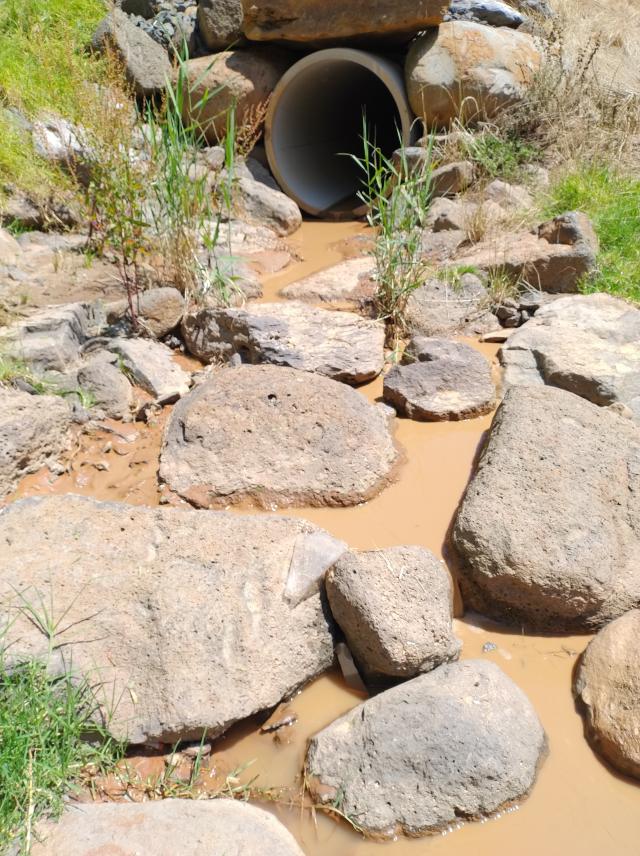Liam McNally
Moorabool council has released an updated report into pollution in the Werribee River through Bacchus Marsh, however the Bacchus Marsh Platypus Alliance disagrees with some of its findings.
Six months ago, Moorabool council released a report that investigated pollution entering the Werribee River through Bacchus Marsh from nearby development sites.
The June report identified four sources of turbidity entering the river – removal of the southern rural channel, active construction sites, new house construction and existing sodic soils in the undeveloped land to the west of the Stonehill development.
The new report, tabled at a council meeting on December 6, provided an update on these issues.
To deal with failures in environmental controls on developments, and pollution caused by private construction sites, council said it has been conducting daily inspections and weekly audits to ensure controls have been implemented.
The report said a large portion of the Stonehill development and the adjacent undeveloped land to the west is covered by easily erodible sodic soils, and managing run-off during construction on these soils has been a “very difficult process”.
However, since the stages immediately adjacent to the river have been completed there is now a buffer between the construction and the river.
The council report said in the last 6 months there have been “very few occasions when non-compliances have been observed”, and that all these measures have seen “turbidity significantly reduced”.
“These have all been rectified within an appropriate timeframe as set out by council inspectors,” it said.
Bacchus Marsh Platypus Alliance president Dr Jodie Valpied, who was involved in originally recording and reporting high levels of pollution on the river, disagrees with some of council’s findings.
Dr Valpied said that in BMPA’s view, run-off from development sites is the biggest cause of turbidity, and in the past six months BMPA is still observing alleged non-compliance issues.
“It is unclear why council officers only observed these non-compliances on ‘very few occasions’… issues have remained un-rectified for multiple months, and many are still not rectified,” she said.
An EPA spokesperson said the EPA is continuing to work with council and authorities to improve water quality in the Werribee River and restrict the discharge of sediment that has proved a problem in the past.
“We meet with council to review and consider actions that will achieve that goal and have actively engaged with industries that impact the river,” they said.
“The health of the river has improved but we still require anyone whose activities can impact on the river to act to ensure its water quality is maintained.”







